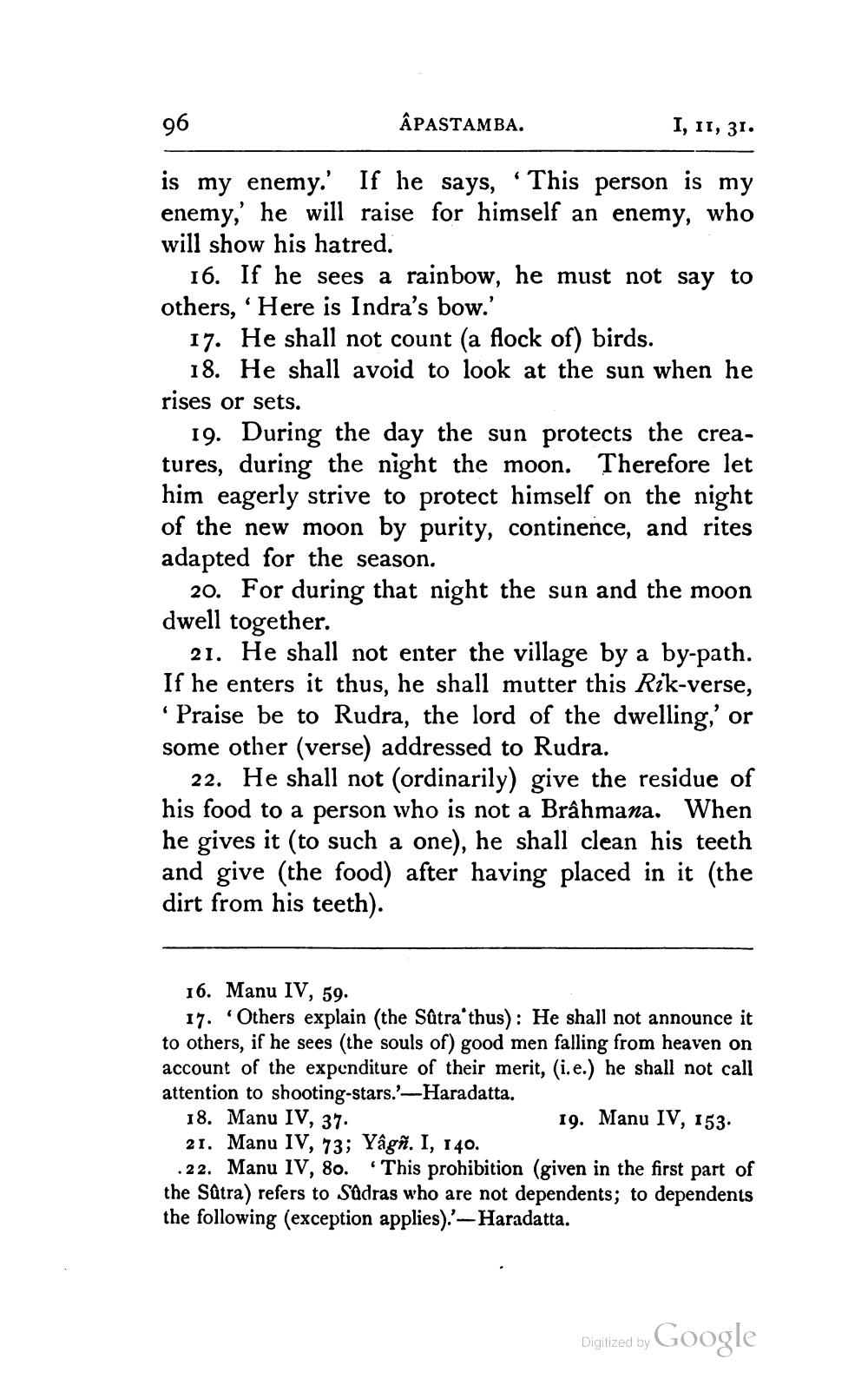________________
96
ÂPASTAMBA.
I, 11, 31.
is my enemy. If he says, “This person is my enemy,' he will raise for himself an enemy, who will show his hatred.
16. If he sees a rainbow, he must not say to others, 'Here is Indra's bow.'
17. He shall not count (a flock of) birds.
18. He shall avoid to look at the sun when he rises or sets.
19. During the day the sun protects the creatures, during the night the moon. Therefore let him eagerly strive to protect himself on the night of the new moon by purity, continence, and rites adapted for the season.
20. For during that night the sun and the moon dwell together.
21. He shall not enter the village by a by-path. If he enters it thus, he shall mutter this Rik-verse,
Praise be to Rudra, the lord of the dwelling,' or some other (verse) addressed to Rudra.
22. He shall not (ordinarily) give the residue of his food to a person who is not a Brâhmana. When he gives it (to such a one), he shall clean his teeth and give (the food) after having placed in it (the dirt from his teeth).
16. Manu IV, 59.
17. Others explain the Sätra'thus): He shall not announce it to others, if he sees (the souls of) good men falling from heaven on account of the expenditure of their merit, (i.e.) he shall not call attention to shooting-stars.'-Haradatta. 18. Manu IV, 37.
19. Manu IV, 153. 21. Manu IV, 73; Yâgñ. I, 140. .22. Manu IV, 80. 'This prohibition (given in the first part of the Satra) refers to Sadras who are not dependents; to dependents the following (exception applies).'--Haradatta.
Digjized by Google




